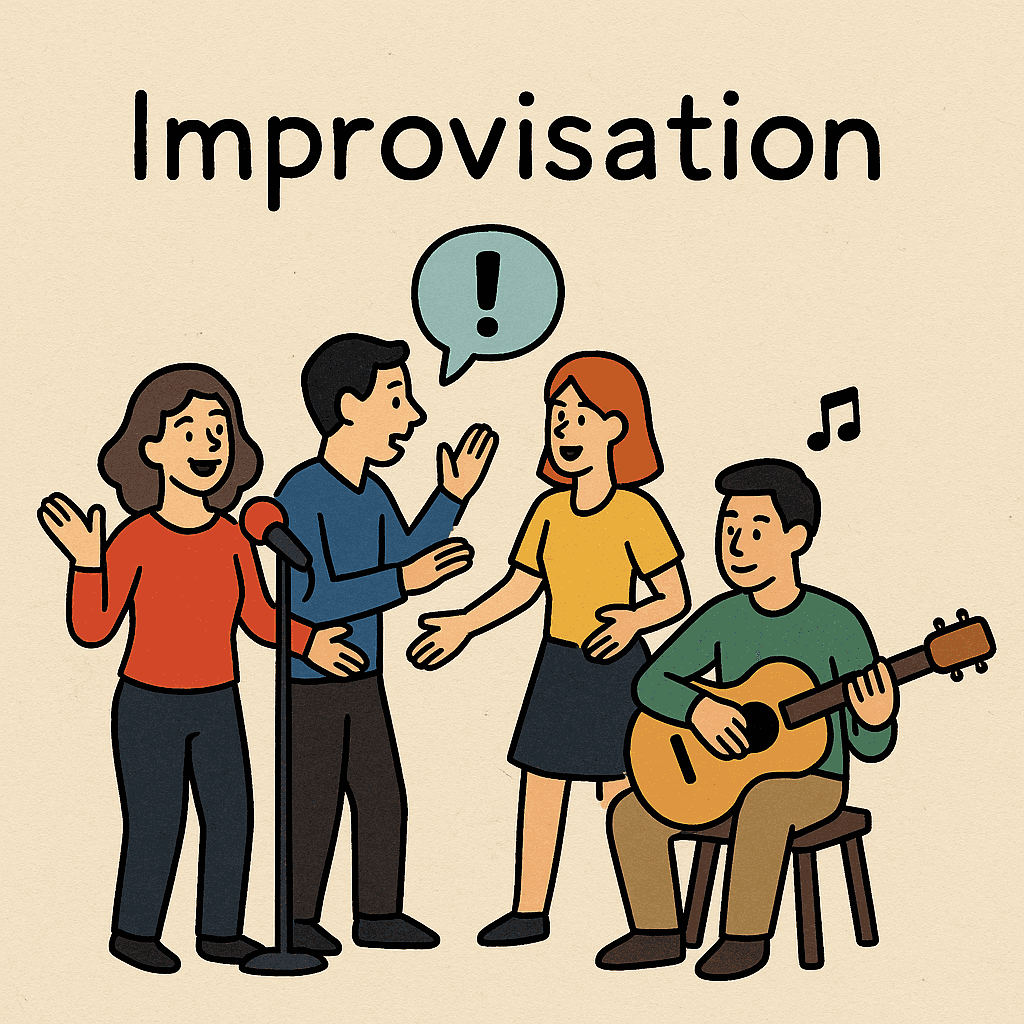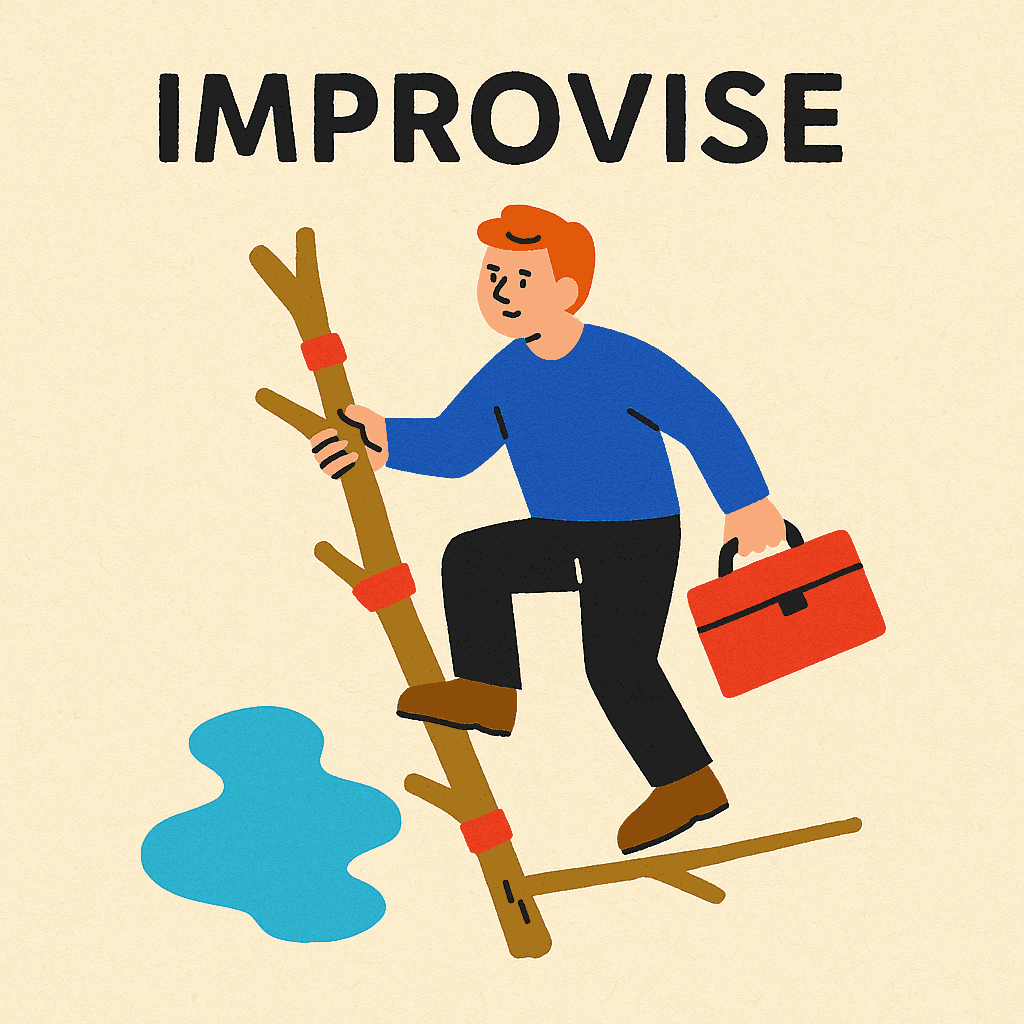Meaning
Improvisation means creating or performing something spontaneously, without preparation. It often refers to speaking, acting, or playing music in the moment.
Grammar and Usage
- Part of speech: Noun
- Used to describe an act of creating or performing without rehearsal.
- Common in contexts like music, theater, public speaking, and problem-solving.
- Verb form: improvise
- Adjective form: improvisational
Typical structures:
- “an improvisation on [topic/theme]”
- “do/perform improvisation”
Common Phrases
- Musical improvisation
- Theatrical improvisation
- Comedy improvisation
- On-the-spot improvisation
Collocations
- Verb + improvisation: perform improvisation, rely on improvisation, allow improvisation
- Adjective + improvisation: spontaneous improvisation, brilliant improvisation, musical improvisation
- Noun + of improvisation: art of improvisation, skill of improvisation
Examples
- The jazz band’s improvisation amazed the audience.
- Good leaders sometimes depend on improvisation in unexpected situations.
- She gave an impressive improvisation on the piano.
- Improvisation is an essential skill for actors in live theater.
- The comedian’s improvisation made everyone laugh.
- In emergencies, quick improvisation can save lives.
- The workshop focused on improvisation exercises for public speaking.
Synonyms or Related
- Spontaneity
- Ad-lib
- Extemporization
- On-the-spot creation
- Make up (informal)

